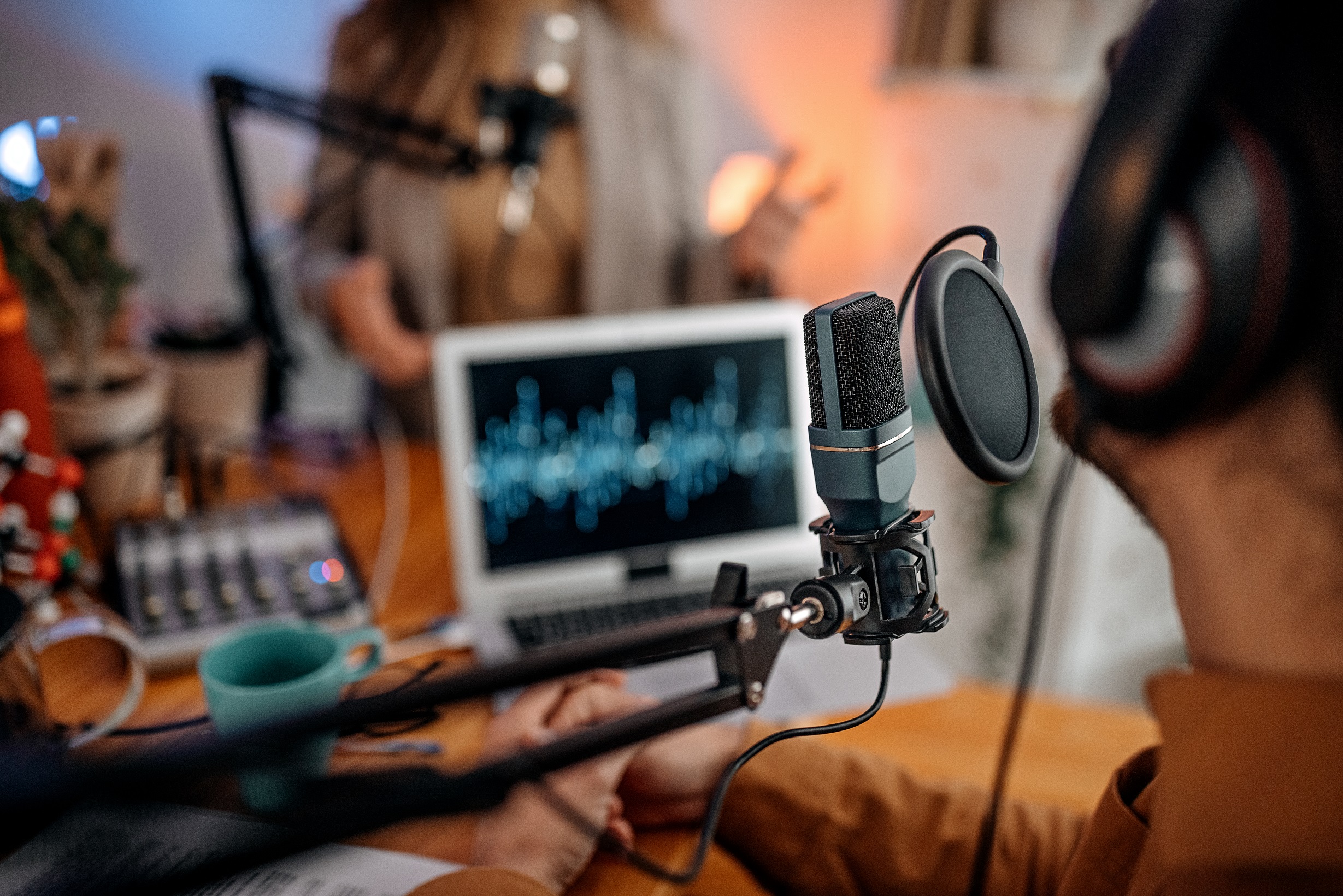سئل أحد محرري بي بي سي العالمية يوما عن تحديات العمل في مهنة شاقة تتطلب إعداد نشرات أخبار يومية على مدى عشرات السنين؟ فأجاب: أبدا يا سادتي.. كان الأمر ممتعا فقد أعددنا نشرة واحدة قبل عدة عقود ونحن نقوم فقط بتحديثها كل يوم!
فالمحررون يقضون جل وقتهم في غرف الأخبار يوميا للحصول على المعلومة وتحريرها وتقديمها للمتلقي وهم حريصون ألا يظهر دورهم أكبر من مجرد النقل.
في الإنجليزية يوصف المراسل الصحفي بأنه Reporter ومن هنا فإن من أصعب ما يحرره الصحفي هو ذلك المرتبط بمؤسسته، ففي عرفه أنه ناقل للقصة وليس جزءا من أحداثها.
من الرقم الصعب إلى غياهب الرقمية
في نهاية سبتمبر/ أيلول الماضي كان مؤسفا تواتر الأنباء عن قرار إيقاف إذاعة بي بي سي العربية بعد أن ظلت لعقود منبرا ألهَمَ كل التجارب الإعلامية فيما بعد ليخسر المشهد الإعلامي العربي بغيابها جزءا من الذاكرة الجمعية العربية وقبل ذلك أعدادا غفيرة من الإعلاميين في ذلك الصرح العريق.
لقد وفر انتشار أخبار الإذاعة مادة دسمة التقطتها جل وسائل الإعلام مناقشة وتحليلا واستعراضا لتاريخ الإذاعة وقيمتها السياسية والاجتماعية والتاريخية على مدى عقود.
ورغم تلك الضجة التي أثارها القرار وتعليقات مواقع التواصل الاجتماعي يومها فقد استغرق الأمر عدة أيام لتتحدث عنه المحطة، واختارت وحدها التزام الصمت وهي المعنية الأولى بالقضية.
حافظت المحطة على رصانتها لثلاثة أيام قبل أن تقدم لقرائها بيانا رسميا بررت فيه الخطوة بأنها تأتي تماشيا مع تغيّرات طرأت على احتياجات الجمهور حول العالم - مع تحوّل المزيد من الناس صوب المنصات الإخبارية الرقمية – ثم أشارت إلى التحديات المالية الراهنة حول العالم.
هل كان ذلك رصانة وتحققا من الخبر؟ أم كان أملا في مبادرات خلف الكواليس لتلافي الخطوة أو التقليل من تداعياتها السلبية؟ أم هو الإعلامي حين يتفادى أن يكون مادة للخبر بعد أن كان لسنوات ناقلا له؟ أيا كانت الإجابة فإن عزاء المحطة العريقة هو أن السطر الأخير في السيرة الذاتية لكل العظماء لم يكتبوه في حياتهم وتركوه للتاريخ ليسجله كل كما رآه.

بي بي سي والخطايا العشر
أيا كان الأمر فإن العقبات المادية وأزمات التمويل ظلت عبر تاريخ الإعلام سببا في تحولات كبيرة شهدتها صناعة الإعلام توقفت خلالها إمبراطوريات ضخمة عن البث وتراجعت أهمية بعضها مع التطور الذي شهدته الصناعة.
وفي العصر الرقمي شهدت منصات الإعلام تحولات واسعة خاصة مع تحول العالم إلى قرية صغيرة ومع نهم واسع لمتابعة الجديد بأجهزة باتت تغزو جيوبنا ونتوقع منها أن تبقينا على اتصال بالعالم لحظة بلحظة.
ما يعنيني اليوم في هذه الخسارة هو الوقوف عند تفويت اللحظة التاريخية التي كان يمكن للمحطة العريقة أن تغتنمها وهي على مشارف الاختفاء عن عالم الراديو على الأقل في هذه المرحلة. أقصد بالتحديد "ترسانتها" التاريخية فقد حققت فيه قصب السبق واستطاعت خلال عقود ضمان ولاء ملايين المستمعين والنخب إلى جانب أرشيف هو الأضخم عربيا.
تقول المحطة إن الخطوة جاءت لمراعاة احتياجات الجمهور ولعل شكوكا كثيرة تحوم حول هذه الفرضية، فقصة النجاح في الإذاعة لم تتكرر في التلفزيون الذي يعاني كما هو واضح من ضعف في التمويل وقدرة على متابعة الأحداث الكبرى ونقص في التحقيقات الأصيلة وغياب في النجومية.
وفي الجانب الرقمي تحقق المحطة على ما يبدو حضورا وسط النخب الإعلامية لكنها تواجه منافسة شديدة مع مواقع إخبارية إلكترونية تزخر بها فضاءاتنا العربية إلى جانب المواقع المحلية التي باتت تحظى بنصيب وافر من المتابعة.
وهنا بيت القصيد في هذه الأطروحة، فالقناة التي كانت سباقة في البث الإذاعي ثم التلفزيوني في تجربتها الأولى عام 1996من القرن الماضي وكان بإمكانها أن تنتقل للرقمية وهي في أوج عطائها عجزت عن التقاط اللحظة والتحول إلى الرقمنة كتجربة رائدة يمكن أن تلهم الفضاء العربي الإلكتروني.
اختارت بي بي سي العربية الانتقال إلى الفضاء الرقمي وقد فقدت الكثير من مقدراتها ولعلها لو فعلت ذلك منذ سنوات لضمنت جمهورا وفيا يلحق بها ويعزز موقعها وموقع البث الرقمي.
تنتقل بي بي سي العربية إلى المنصات الرقمية وقد فرطت في الكثير من كوادرها المشهود لها بالتميز سواء على صعيد الشكل أو الصوت أو سلامة اللغة فغامرت بأصوات وكفاءات شابة لم تتعود عليها أذن المستمع التي تعودت على هوية صوتية وأسماء وأصوات بادلها الكثير من الحنين والولاء بما يكفي للتحول معها إلى ميدان البث الجديد.
تنتقل بي بي سي العربية إلى الرقمنة بعد أن أخفقت في انتقال مبتكر في المضمون ودون أن تقدم محتوى جاذبا مميزا يغري بالدخول معها إلى الفضاء الرقمي.
شخصيا وباستثناء برنامج بي بي سي إكسترا بنسخته الإذاعية لا يبدو أن في أثير المحطة ما يغري بالمتابعة فقد سقطت نشرات الأخبار في شرك الترجمات المتواضعة والتكرار البين خاصة في ذروة كوفيد- 19 حين كانت النشرات تعاد عشرات المرات دون أي مظهر من مظاهر الاكتراث لأحداث العالم الأخرى!
للأمانة فقد شهدت المحطة على مدى السنوات الأخيرة محاولات على صعيد الشكل للتغيير فكانت الساعات الخليجية والمغاربية ولكنها في المضمون ظلت رتيبة سطحية لا تقدم للمتلقي مادة مميزة، وكان يكفي أن تسمع لاستعراض الصحف الخليجية لتدرك أن ثمة استسهالا في اختيار المادة وضعفا في المراجعة والاستدراك لمحتواها المحلي الصرف.
تنتقل بي بي سي إلى الرقمنة دون خطة واضحة المعالم تقدم للجمهور ودون أن يقدم موقعها الإلكتروني بأبسط ملامحه مادة مغرية في التحليل والسياسة مكتفيا بأخبار متفرقة مترجمة عن الإنجليزية وتغازل في كثير منها في بشريتنا مواقع بعيدة عن العقل والتفكير لتنحاز إلى مناطق أقرب للنزوات السريعة منها إلى قضايا السياسة التي ميزت الإذاعة إبان مجدها.
تنتقل بي بي سي إلى الرقمنة بعد أن أخفقت في انتقال سلس من لندن إلى المنطقة العربية بل وفي سجلها محاولة استرضاء أنظمة سياسية عديدة بحثا عن موطئ قدم وقدمت في سبيل ذلك محتوى بات في كثير منه مشابها للمحتوى الذي تقدمه المواقع المحلية بنبرة أقل تحديا وإبداعا في التغطية.
في الخلاصة فإن بي بي سي العربية أخفقت في أن يكون انتقالها للرقمنة انتقال عبد الرحمن الداخل يخرج هاربا من بغداد مع نهاية الدولة الأموية لبداية جديدة مبهرة ومؤثرة تكون رائدة لتجارب أخرى كما صنع في الأندلس واختارت بدلا من ذلك التجربة النابليونية التي يكون فيها الانتقال للموت بصمت وبعيدا عن الأضواء.




















![Palestinian journalists attempt to connect to the internet using their phones in Rafah on the southern Gaza Strip. [Said Khatib/AFP]](/sites/default/files/ajr/2025/34962UB-highres-1705225575%20Large.jpeg)




















